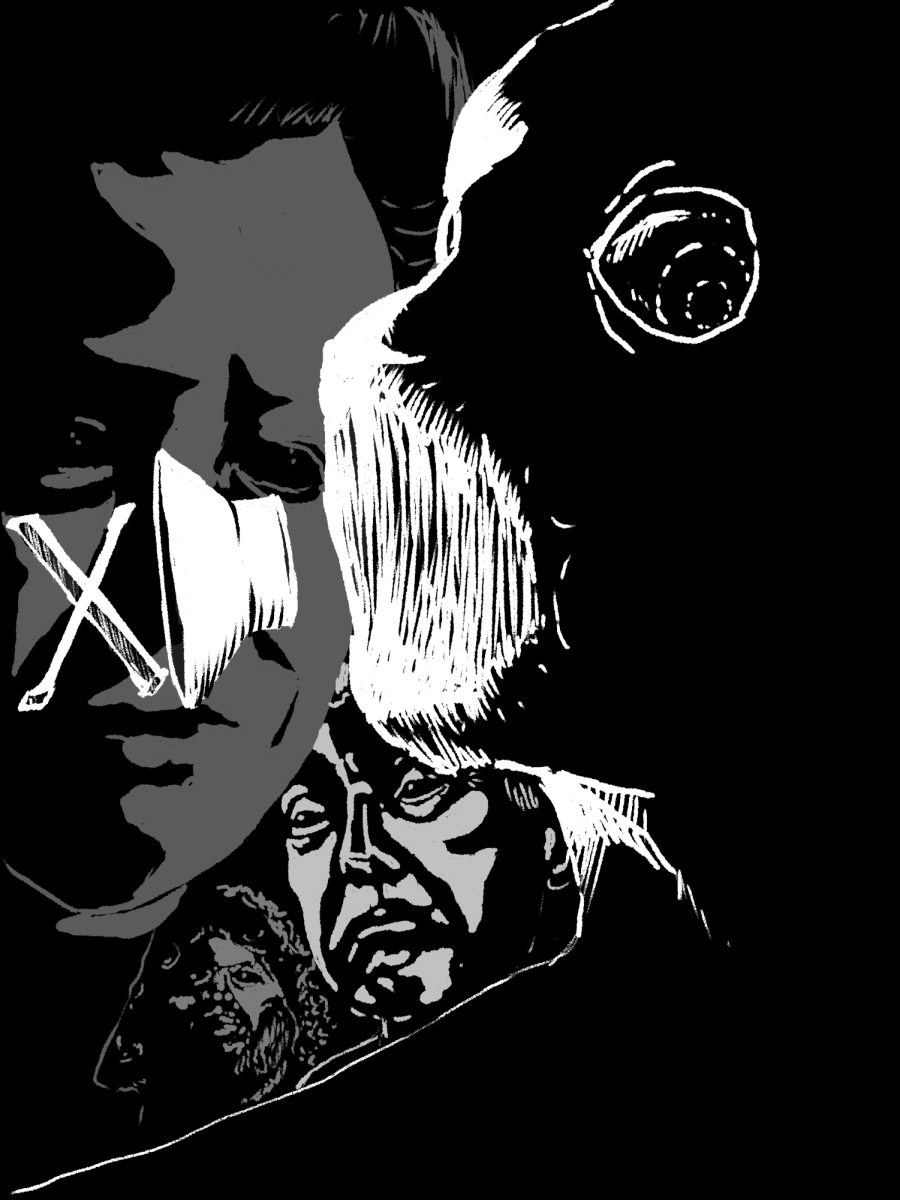
This article was contributed by Elizabeth Cole ’15
On an unusually warm Sunday night in mid-September of this year, I sat down for dinner at one of Olive’s outdoor tables with two friends and an almost complete stranger.
I had met Nick Brandenburg only once, about a week earlier, when my friend Amalia and I had crashed the ending of a Whitman Christian Fellowship meeting in order to find the owner of a lost Bible. The Bible had been Nick’s and it had been missing for two years. As we sat down to dinner with him as an offering of thanks, he was naturally curious how we had stumbled across his missing Bible in the first place.
But before I start, let me offer this disclaimer: I’m insatiably curious about the lives of others, and I’m really good at Facebook stalking. I don’t watch “Jersey Shore,” and I don’t keep up with the Kardashians, but Facebook is where my inner voyeuristic self abandons its ego and allows my id-addled mind to run rampant. I understand that admitting this to the general public is begging to be labeled “creepy,” but at this point in my life, I’m well used to the epithet.

This was how I was known for a better part of my freshman year––to my roommate, to my section-mates, and especially to my first semester RA, who was simultaneously confused and fascinated by my friend Rachel’s and my constant little adventures sparked by a curiosity that everyone else saw as just plain creepy.
People Search, naturally, became our weapon of choice. It accompanied us at nearly every meal, because when you talked about that one kid in your Encounters class, it was better if you could provide a picture so the rest of the table knew exactly whom you were talking about.
Given this precedent set up by my first year at Whitman, it seemed only natural that my second year would start with some good old-fashioned creepin’.
I had been at Whitman only three days, and I was already poking around in places into which I hadn’t been invited. The Interest House Community is prime ground for snooping because not one person, or one family, but round after round of different students have lived in these houses and left behind their own little pieces of their stories.
So as Rachel was unpacking the last of her boxes in order to fill the massive void of her room in the attic of the Asian Studies House, I was busy snooping.

Because it’s an attic, the room is littered with tiny, dark, musty closets scattered along the edges that lead into the shadowy oblivion of the house’s roof.
This is where I found the Bible.
The closet near the front of the room was small with a sticky doorknob that made it difficult to open, and even after I did, I couldn’t see far into the rafters of the closet. So I grabbed a flashlight and followed the trail of illuminated dust through the black.
I found a telephone neatly stashed in a plastic grocery bag tied in bunny ears at the top, a pile of canvas sheets a little farther back, and to the right, behind the door frame, in the darkest little out-of-reach corner of the closet, a brown leather Bible perched on a rafter.

It was rather small and worn, and on the front, etched in gold letters, was a name: Nick Brandenburg. Inside there was a date––2006––and hand-scribbled notes attesting to the good nature and valuable friendship of its owner. It ached to be found. I knew someone was missing it.
So I went home and I People Searched the name. He wasn’t a student long-graduated from the college as we had thought because of the date on the Bible, but a youth minister at the college. He was part of the Whitman Christian Fellowship and lived in Walla Walla. I looked up his address in the online Yellow Pages, and found a street name but no house number. This was enough, however, for me and my friend Amalia, who was similarly intrigued by the origin of the Bible, to go on a hunt.

The following morning we rode our bikes to the street I had found and ended up in a slightly seedy neighborhood in the more industrial region of Walla Walla. We rode up and down the street in search of clues: a Whitman bumper sticker, a name on a mailbox. When we found none we turned to the neighbors for help. The first was a small Hispanic woman, diligently watering her lawn. We asked if she’d heard of the family we were searching for, but her eyes were filled with incomprehension and she called in Spanish for her young grandson to speak in her place.
“Never mind,” we told him. We’d try someone else.
The next was a short, stout man in a greasy tank top, head wreathed in a mangy mane. He was in the middle of a moving sale and stood at the curb in front of a proud exhibit of nearly every item he owned. He hadn’t heard of the people we were searching for, but he had a deal for us: everything on his lawn for just five dollars.
We politely declined as we had no appropriate means of transportation for the items themselves, but before we left he stopped us, and asked with great earnest, “Are you prayers?”
Confused by his phrasing we asked for clarification, and he responded, “You know, can you pray for me? I’m moving, and I just need a blessing.”
It was then that I realized what we must have looked like: two college-aged young adults roaming neighborhoods on bikes. He thought we were there to deliver the “good word.” Remembering the Bible hidden safely in my bag, I realized he wasn’t far off.
He took our hands and asked our names. His was Adam, and I knew I was breaking every rule my mother had taught me about strangers when I was young. He closed his eyes and said, “Go!”
Amalia crafted a short prayer for our new friend, and when she had finished, he looked just about as happy as if we had taken his earlier deal but upped the offer tenfold. Grateful, and eager to reciprocate, he grabbed us each by the shoulder and tapped us twice, rather forcefully, on our helmets in a blessing.
After saying our goodbyes, we rode back to school, leaving Adam and his menagerie in proud display behind us, the Bible still heavy in my bag.
Back home in my room, I found a link on a web page I had failed to click on that supplied the elusive house number. We’d been on the right street the whole time, but we had been on the wrong side of the highway, and in the wrong neighborhood.
But later that week, fortune delivered us our opportunity in the form of an email: the Whitman Christian Fellowship would be meeting in the basement of Reid that night, and Nick would be there.
When we arrived, they were in the midst of song, so we waited for the meeting to end, found Nick in the crowd and, as I handed him the Bible, witnessed countless different emotions flash across his face in a matter of seconds as he laid sight upon a Bible he had been searching for for two years.
The dinner we enjoyed with Nick later that week offered closure to part of our story: We now knew to whom the Bible belonged. It was the first Bible he had ever owned, and he had lost it two years ago at an event in the amphitheater. He had been searching for it––on campus, in thrift stores––ever since. But even after piecing together our half of the story with Nick’s, how the Bible ended up hidden in the back of that closet in the Asian Studies House in the first place remains a mystery. But it is a mystery which, I have no doubt, a little more creepin’ and a little more snooping would be able to uncover.






